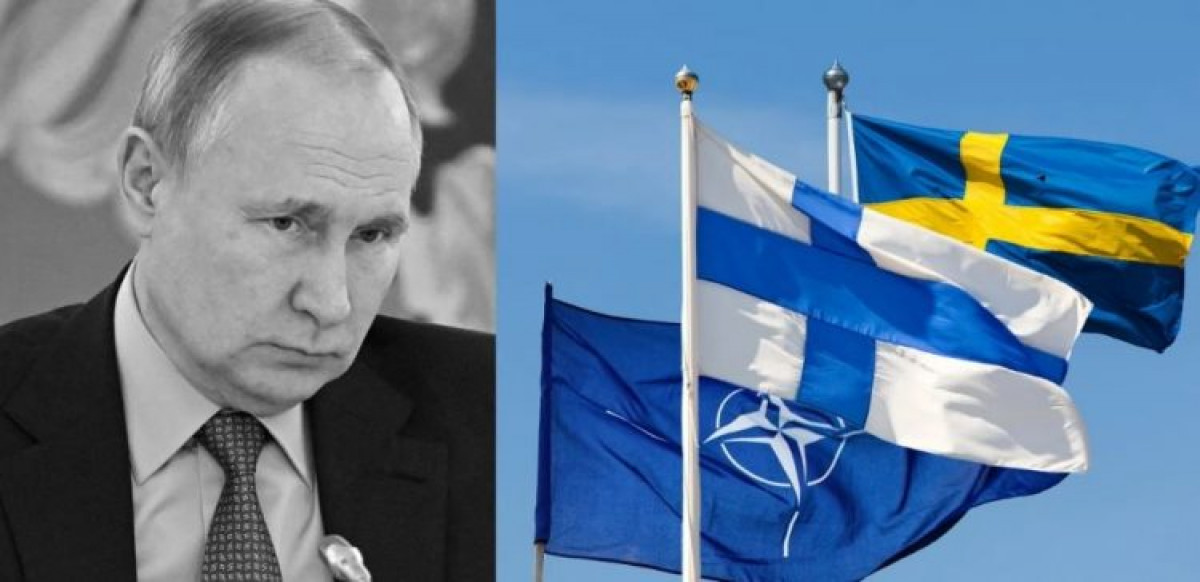 211
211
Amid fierce hostilities in Ukraine that rage unabated, and while NATO troops continue their insidious encroachment on Eastern Europe, Putin is reportedly insisting adamantly that no new European nations should join NATO at any cost.
Nonetheless, given Russia’s lacklustre military performance in Ukraine, Finland and Sweden swiftly initiated their parliamentary deliberations on the subject of NATO membership.
Helsinki and Stockholm’s dramatic decisions to join NATO emerged with the Russian blitzkrieg, which relatively failed to crush Ukraine’s far-right, US-backed militias. But owing to the overwhelmingly advanced military assistance to the beleaguered Ukrainian fascists from the United States and its western allies, Russia’s military tactics encountered a logistical debacle that they may finally be able to overcome.
In view of the current military standoff in Ukraine, the two Scandinavian nations are attempting to exploit Putin’s Ukraine crisis by joining NATO, despite their long-standing policy of maintaining absolute neutrality even in the post-Cold War.
Due to the Russian army’s temporary fiasco in Ukraine, Finns and Swedes widely deem joining NATO [under its Article 5] a positive step in bolstering their national defence vis-à-vis their fearsome eastern neighbour. Recent surveys indicate that roughly 62% of Finns support their nation’s bid to join NATO.
Looming on the horizon, the Scandinavian countries’ admission into NATO would increase the pro-US block’s power in the Nordic region, as Finland’s F-35 cutting-edge warplanes and Sweden’s strong missile defence systems have the potential to enhance the alliance’s military capabilities.
Geopolitically, Finland’s accession to NATO might help close a significant defence gap among the NATO members. Politically, the two countries’ impending membership will undoubtedly contribute to the further coherence of the Western defensive strategies.
But what is certain is that the two countries’ membership in NATO, especially those located along the Russian borders, will provoke a formidable and hostile reaction from the Kremlin’s angry Tsar, Mr Putin.
The Russian diplomats, on the other hand, did not stand still. According to Dmitry Polyanskiy, Russia’s deputy permanent representative to the UN, the Kremlin has threatened that as soon as Helsinki and Stockholm join NATO, they might become legitimate targets for Russian armed forces. Furthermore, Sergei Ryabkov, the Russian deputy foreign minister, also described the attempts made by Finland and Sweden to join NATO as a “mistake with far-reaching implications.”
Mr Ryabkov went on to say that if Helsinki and Stockholm joined NATO, the general level of military tensions would deteriorate, making it more difficult to predict the consequences of the next military move.
Following Russia’s threat against Finland and Sweden, a British newspaper reported on May 16th that Russian missile battalions capable of carrying nuclear warheads had inched closer to the Russia-Finland border. According to footage released on Monday by “The Mirror,” a British daily newspaper, the dreadful Iskander ballistic missile batteries were allegedly moving along a roadway towards the Finnish border.
Apart from Russian threats and retaliatory moves that have made it challenging for Finland and Sweden to join NATO, Ankara has opposed the initiative as a key NATO member and crucial US ally.
Turkish dictator Recep Tayyip Erdoğan has described Finland and Sweden’s accession to NATO as a “wrong move.”
“Many terrorist groups are based in Finland and Sweden,” Erdoğan remarked, alluding to the Kurdistan Workers’ Party (PKK), which has waged a decades-long struggle against Ankara, vying to achieve independence for millions of Kurds living in Turkey.
Mr Erdoğan noted that his country does not have a positive view regarding the two European countries’ membership in NATO, as their membership, according to Erdoğan, will risk the neutrality of Finland and Sweden, which have existed since the Cold War.
Sadly, Mr Erdoğan forgot to mention that his regime continues to provide a safe haven for Saudi-Israeli-backed extremist terrorists who attempt to overthrow Syria’s democratically elected government. He also neglected to note that his son-in-law, Berat Albayrak, exploited the Syrian turmoil by engaging in lucrative oil deals with ISIS terrorists who once controlled Syria’s oil fields.
Comment
Post a comment for this article